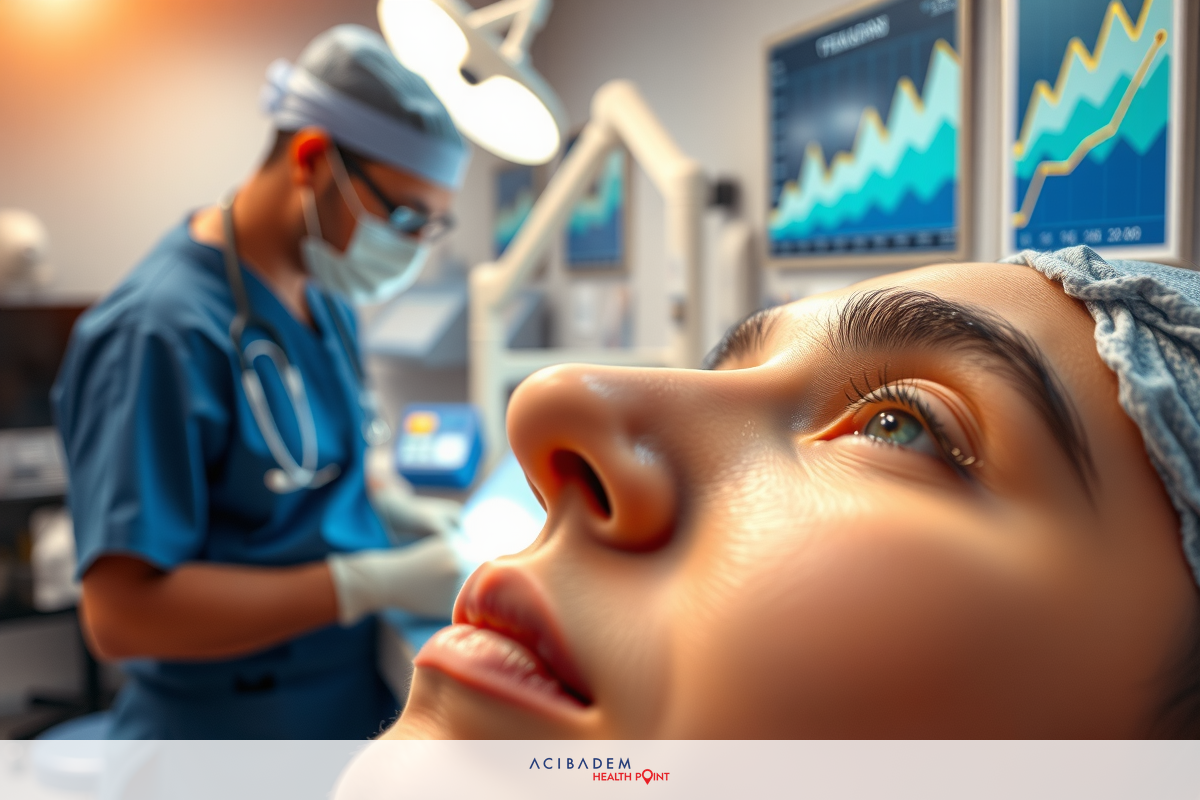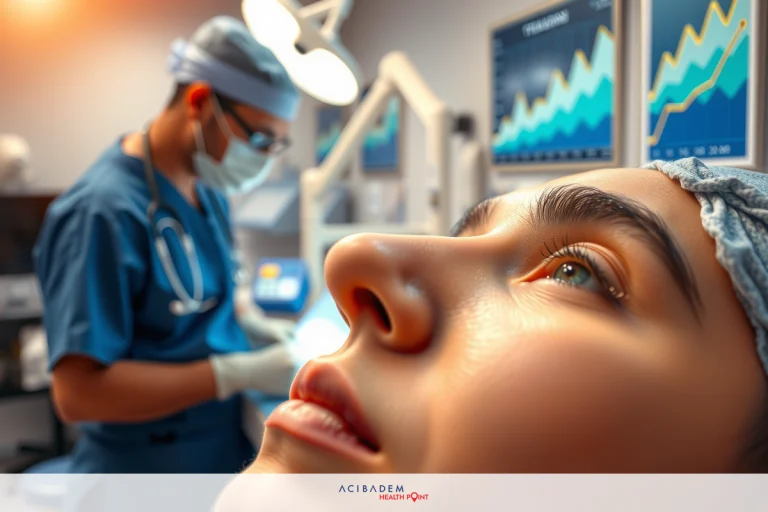What is the Average Cost of Nose Surgery?
What is the Average Cost of Nose Surgery? Nose surgery, technically known as rhinoplasty, is a popular surgical procedure that can dramatically change the shape and size of your nose. The cost of this surgery can vary significantly depending on several factors including the complexity of the procedure, the surgeon’s expertise, and geographic location. An understanding of the average cost is essential for individuals considering this surgery.
It’s important to be aware that medical insurance may not cover cosmetic procedures like rhinoplasty, unless it is performed for medical reasons such as addressing breathing difficulties. If you are contemplating nose surgery for cosmetic enhancements, it is advisable to conduct a comprehensive assessment of your financial options and potential out-of-pocket expenses. It’s recommended to consult with multiple surgeons and your insurance provider to gain a precise understanding of the complete cost breakdown.
Factors Affecting the Cost
The cost of nose surgery can vary widely depending on several influencing factors. The first and foremost is the surgeon’s expertise. Surgeons with extensive experience and a strong reputation in the field of rhinoplasty tend to charge higher fees. This is because their vast knowledge and surgical skills often lead to better results, reducing the risk of complications or need for revision surgeries.
Another significant factor is the complexity of the procedure. Nose surgeries can range from simple reshaping procedures to complex reconstructions involving cartilage grafts. The more complex the procedure, the longer it takes, and therefore, the higher the cost. Additionally, if the nose surgery involves correcting functional issues such as a deviated septum, this will also contribute to a higher price tag due to the additional surgical complexities involved.
Geographical location also plays a role in determining cost. In areas where the cost of living is high, surgeons’ fees, hospital charges, and other related costs are likely to be higher. On the same note, if your procedure necessitates an overnight hospital stay, this will further increase your total expenses. Similarly, anesthesia fees can vary and will add to your overall nose surgery cost.
Lastly, post-operative care such as follow-up appointments, medication, and any necessary recovery aids should also be taken into account when considering the total cost of a nose surgery. These costs may not always be included in initial surgical estimates but are nonetheless essential for a successful recovery process. It’s important to discuss all these factors with your chosen surgeon during your consultation to get a comprehensive understanding of all potential costs associated with your nose surgery.
Average Cost Range
The average cost range for nose surgery is a crucial aspect to consider when planning for this procedure. It’s important to note that the costs can vary significantly based on the factors discussed in the previous section. However, to provide a general insight, it is observed that the typical cost of rhinoplasty falls somewhere between $5,000 and $10,000.
This range accounts for the surgeon’s fee, anesthesia, and facility or hospital costs. The lower end of the spectrum usually represents more straightforward procedures performed by less experienced surgeons or in areas with a lower cost of living. On the other hand, the higher end of the range typically involves more complex procedures performed by highly experienced surgeons in metropolitan areas where costs are generally higher.
It’s worth noting that these costs represent out-of-pocket expenses for cosmetic nose surgeries which are typically not covered by insurance. If your nose surgery is deemed medically necessary, insurance may cover a portion of the costs, possibly bringing your expenses down significantly. However, each insurance company has its own policies regarding what they consider medically necessary, so it’s advisable to consult with your provider for specific details.
In summary, while the average cost range provides a broad idea of what you might expect to pay for nose surgery, individual costs can fluctuate based on various factors. Therefore, it’s essential to have an open discussion with your surgeon about all potential fees associated with your procedure to ensure you have an accurate understanding of your financial commitment.

Financing and Insurance Coverage
Financing and insurance coverage are key aspects to consider when planning for nose surgery. As discussed earlier, nose surgeries can be quite expensive, particularly if they’re performed for cosmetic reasons. The good news is that there are several financing options available to help manage these costs, making the procedure more accessible to many patients.
Many surgical practices offer in-house financing plans or work with third-party financing companies that offer medical loans. These loans are specifically designed to cover healthcare costs and typically offer flexible repayment terms. It’s important to fully understand the terms and conditions of any loan agreement, including interest rates and potential penalties for late or missed payments. Be sure to ask plenty of questions and consider all options before committing to a financing plan.
When it comes to insurance coverage, it’s crucial to note that most insurance companies do not cover elective cosmetic procedures. If your nose surgery is intended purely for aesthetic improvements, you’ll likely need to cover the entire cost out-of-pocket. However, if the surgery is required to correct functional issues or deformities resulting from injury or birth defects, your insurance may cover part or all of the cost. Each insurance company has its own policies regarding what constitutes a medically necessary procedure, so it’s recommended that you consult with your provider for specific information related to your case.
In conclusion, there are various avenues for financing nose surgery, from personal savings and loans to possible insurance coverage. By exploring all available options and consulting with both your surgeon and insurance provider, you can make an informed decision that aligns with your financial situation and ensures you receive the best care possible.
Frequently Asked Questions
How long is the recovery period after nose surgery?
The recovery period for nose surgery can vary from patient to patient. Generally, it takes about one to two weeks for the initial swelling and bruising to subside. However, complete healing and final results may take several months. Your surgeon will provide specific post-operative instructions to help facilitate a smooth recovery.
Will I have visible scars after nose surgery?
In most cases, the incisions made during nose surgery are hidden within the nostrils or along the natural creases of the nose, resulting in minimal visible scarring. However, the healing process varies for each individual, and some patients may have a faint scar that fades over time. Your surgeon will take necessary precautions to minimize scarring and provide guidance on scar management.
Can I wear glasses after nose surgery?
It's generally recommended to avoid wearing glasses directly on your nose during the initial stages of recovery to prevent pressure or distortion of the surgical area. Your surgeon may suggest alternative options such as taping the glasses to your forehead or using contact lenses until the nose has fully healed.
Are there any risks or complications associated with nose surgery?
As with any surgical procedure, there are potential risks and complications associated with nose surgery. These can include infection, bleeding, adverse reactions to anesthesia, asymmetry, breathing difficulties, and unsatisfactory aesthetic results. However, by choosing a skilled and experienced surgeon and following post-operative care instructions diligently, the risk of complications can be minimized.
Can I expect permanent results from nose surgery?
Nose surgery aims to achieve long-lasting results; however, factors such as aging, weight fluctuations, and injury can influence your appearance over time. While the structural changes made during the surgery are permanent, it's essential to maintain a healthy lifestyle and protect your nose from trauma to ensure the longevity of the results. Regular follow-up appointments with your surgeon can help monitor and address any changes that may occur.











